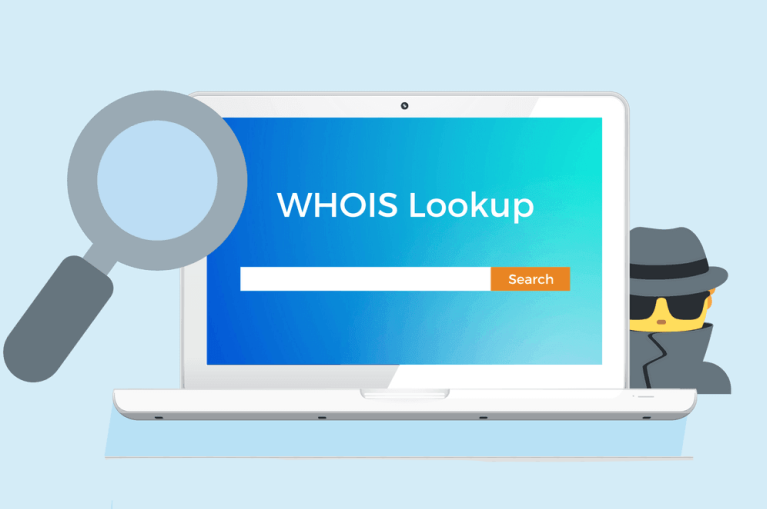
Date First Published: 19th January 2022
Topic: Computer Networking
Subtopic: Network Services
Article Type: Computer Terms & Definitions
Difficulty: MediumDifficulty Level: 5/10
WHOIS is a protocol that first started in 1982, containing a public database of information about all registered domain names. Whenever a user looks up a domain name, the query and response protocol, WHOIS, returns the contact details and registrant information of that domain name, which can be useful for finding out who is hosting a website. WHOIS records vary between different registrars, but they all contain the required information, including the nameservers of the domain name, the IP address, the registration and expiration date of the domain, and the registrant, admin, and technical contacts, which often contain the same information across the three contacts. A WHOIS lookup can be performed on a WHOIS lookup service, like the one on Whois.com.
WHOIS is not an acronym. It is a combination of the two words: 'who' and 'is'. The proper way to spell it is to capitalise it.
Whenever a domain is registered, the registrant's contact details, are, by default, publicly visible. This creates a privacy risk since people can use these personal details to send the registrant spam or phishing emails. At worst, it can lead to identity fraud. Domain registrars protect people's privacy by offering WHOIS privacy protection. When a registrant turns WHOIS privacy protection on, their contact details are hidden from the public and will show something like 'Withheld for privacy', or it could be replaced with the domain registrar's contact details. Some domain registrars charge additional fees for WHOIS privacy protection, but most decent domain registrars, including Namecheap, Google Domains, GoDaddy, and Namesilo offer privacy protection for free.
Privacy protection is not available for all TLDs due to registry restrictions. Examples of TLDs that privacy protection is unavailable for include: .asia, .au, .coop, .in .it, .to, .co.uk, .org.uk, .xn--3ds443g, .vote, .com.es, .com.au, .voto, .us, .ca, .ch, and .cn. An example of WHOIS privacy protection turned on and off can be seen below.
When WHOIS privacy protection is turned on, the domain registrar still has the registrant's details. They are just hidden from the public.
Having all of your personal contact information, including your email address, phone number, physical address, postcode, street, and first and second name is not a good idea. This information is available to the public and is accessible to anyone at any time. These details could be used for illegal purposes, including identity fraud. For example, someone could sign up for unwanted services and subscriptions in your name, which will charge you fees.
At the very least, you will be exposed to unsolicited messages and phone calls (spam) from telemarketers and salespeople as well as phishing emails. Some bots regularly scan the WHOIS database for public contact information, especially new domain names and once they have captured the details, they will continously send spam. If you want to keep your personal information safe and secure, then WHOIS privacy protection is necessary.
If so, it is important that you tell me as soon as possible on this page.
Network Services Network Setups Network Standards Network Hardware Network Identifiers Network Software Internet Protocols Internet Organisations Data Transmission Technologies Web Development Web Design Web Advertising Web Applications Web Organisations Web Technologies Web Services SEO Threats To Systems, Data & Information Security Mechanisms & Technologies Computer Hardware Computer Software Ethics & Sustainability Legislation & User Data Protection